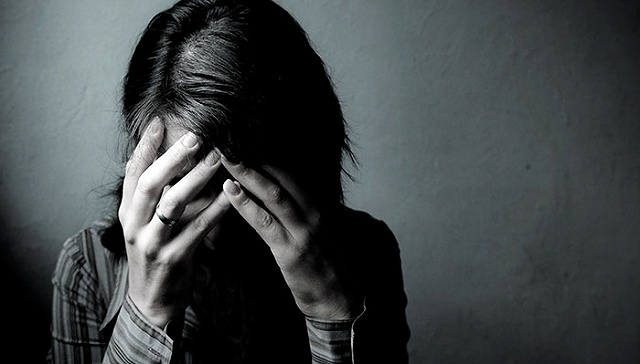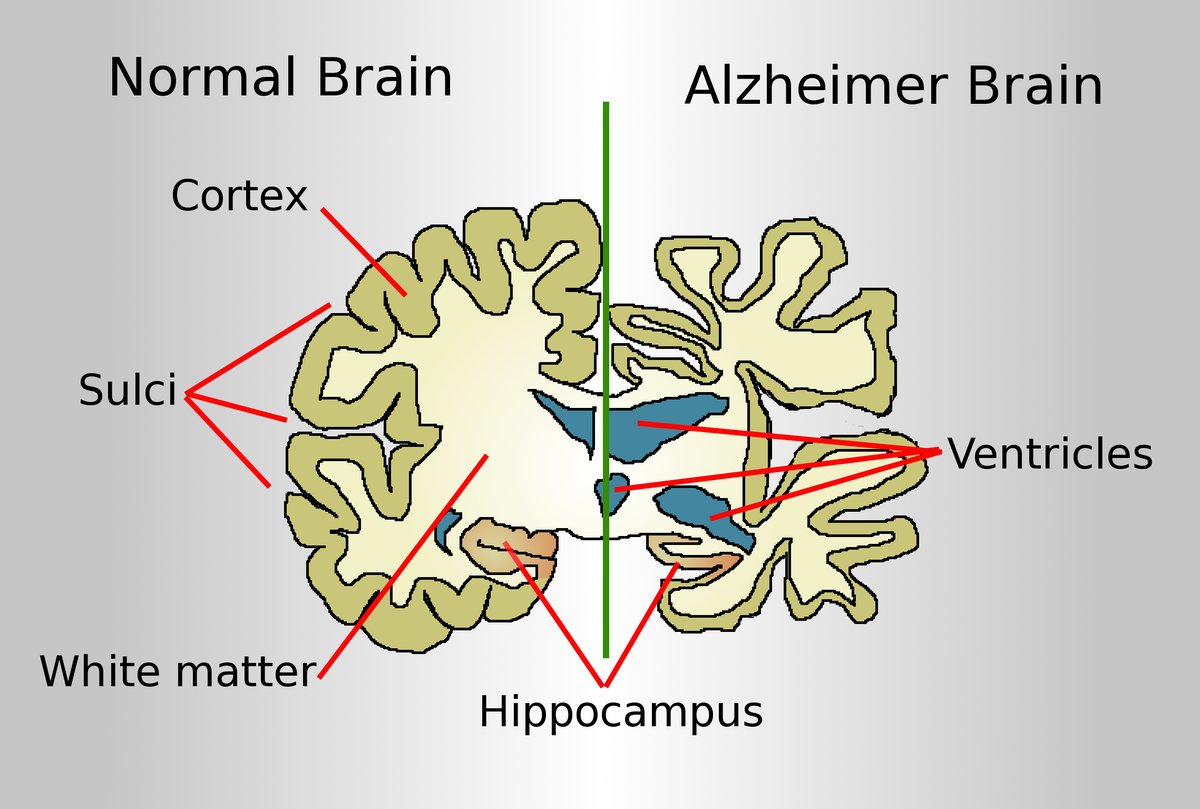health-35
Many people with symptoms of depression do not think they suffer from depression. Some people do not realize that they are suffering from depression, while others do not want to admit that they are suffering from depression. When it comes to depression, many people will find it difficult to talk about it, they will feel like a failure and worry about being judged by others. But we need to recognize this: depression is a very common illness for caregivers, and is a normal reaction that people have in times of distress. Carers face ongoing care needs as they provide care, so it is not unusual for them to suffer from mild or more severe depression.

Depression is a very complex disorder that requires a great deal of research to identify the cause. Known contributing factors include genetic traits, hormone levels, environmental triggers, certain medications, the effects of a major illness, grief and confusion due to the death of a loved one, physical or emotional abuse, and living with a person with major depression. Not everyone has the negative feelings that come with depression. But we do know that caregivers often sacrifice their own physical and emotional needs in order to provide the best possible care for a family member or friend. In providing care, there are a variety of complex and changing situations that can be extremely stressful for even the most capable person. Emotions such as overwhelm, restlessness, anxiety, pain, pessimism, loneliness, and exhaustion - and even guilt for having them - can have serious consequences.
Everyone has negative thoughts or feelings that normally fade away over time, but when these feelings grow stronger and leave you feeling depleted, easily sad or angry at loved ones, it can be a warning sign of depression. When you always feel empty, want to cry, or when these emotions always linger, it is important to be aware that you may be suffering from depression.
However, it is common for people to think of depression as a sign of weakness, not realizing that it could indicate an imbalance of some kind. Other people’s advice, such as “pick yourself up” or “it’s all in your head”, is not helpful and reflects a disregard for their mental health. Ignoring or denying your feelings will not make them go away.
Early attention to depression symptoms, through exercise, healthy eating, support from family or friends, or consultation with a health or mental health professional can prevent depression from worsening.
Symptoms of Depression

Every person with depression has different symptoms. Some people may have typical symptoms of depression, such as sadness and despair. Some people may have symptoms that don’t make them realize they have depression, such as extreme fatigue or irritability. The type and degree of symptoms vary from person to person and may change over time. The following are common symptoms of depression. Have you had any of the following feelings for more than two weeks?
Feeling sad, wanting to cry, empty, hopeless
Changes in eating habits - weight loss, lack of appetite or craving for weight gain
Changes in sleep - sleeping too much or not enough
Feeling tired all the time and not wanting to do anything
Losing interest in people and/or activities that used to bring you joy
Feeling numb
Becoming easily agitated or angry
Feeling like you can’t do anything right
Becoming more dependent on alcohol or drugs
Spending too much time online
Difficulty concentrating, thinking or planning - always feeling confused
Not taking care of your physical health and appearance
Wanting to escape from the current situation
Thoughts of death or suicide, thinking about how to end your life
Persistence of certain physical symptoms despite treatment, such as headaches, digestive disorders, and chronic neck and back pain
Difficulties faced by caregivers
Caring for a person with ADHD can be time-consuming and labor-intensive. Researchers have found that caregivers of people with dementia are twice as likely to suffer from depression as caregivers of people with other conditions. Not only do caregivers of people with degenerative brain disorders have to spend more hours per week providing care, but they also face more serious employment problems, personal stress, mental and physical health issues, are prone to sleep deprivation, don’t have enough time to do their favorite things or spend time with other family members, and have more family conflicts than caregivers of people with other illnesses.
The deterioration of a loved one’s mental and physical abilities is already a huge stressor for the caregiver, and caring for a person with degenerative brain disease makes it even more likely that the caregiver will suffer from depression. Symptoms of dementia such as wandering, restlessness, hoarding, embarrassing behaviors, refusal or non-cooperation with a loved one’s care, and more make each day difficult for the caregiver, making it difficult to get a break or get help. The more severe the condition of the person with dementia, the greater the likelihood that the caregiver will suffer from depression. It is important for caregivers, especially those facing the conditions described above, to have consistent and reliable support and proper rest.
Women have a higher rate of depression than men. The majority of caregivers are women, primarily wives and daughters. In the U.S., about 12 million women suffer from clinical depression each year, about twice the rate of men. If you think depression is just the result of rumination, you are mistaken. Depression can be caused by menopause, childbirth, premenstrual symptoms (PMS), thyroid disease, and nutritional deficiencies due to lack of iron, vitamin D, and omega-3 fatty acids.
A study by Mental Health America found that many women refuse treatment for depression because they are embarrassed or don’t want to admit they are depressed. In fact, 41% of the women surveyed cited embarrassment as the main factor preventing them from getting treatment. Remember, doctors already know a lot about depression. Getting a thorough physical examination is important for both your mental and physical health. If you suspect you have symptoms of depression, talk to your doctor during your exam.
Male caregivers approach depression differently than women. Men are more reluctant to admit that they are depressed and it is more difficult for doctors to diagnose depression in men than in women. Men are more likely to “self-medicate” with alcohol or overwork when faced with symptoms of depression such as anger, irritability or feelings of powerlessness. Male caregivers are more likely than female caregivers to hire others to help with home care, but they lack friends to talk to or positive activities outside the home. Misperceiving depression as a sign of weakness is a major factor that prevents men with depression from seeking help.
Military and veteran caregivers are at risk for depression. Military and veteran caregivers have almost twice the rate of depression as other caregivers. The poorer the veteran’s mental and/or physical health, the more demands the caregiver faces. Caregivers of individuals with conditions such as dementia, traumatic brain injury (TBI), and post-traumatic stress disorder (PTSD) face particularly difficult circumstances. They have to cope with day-to-day life in addition to preventing veterans from becoming irritated and helping them cope with their own mental stress, all of which can be overwhelming and exacerbate depression, especially feelings of hopelessness and despair. Military caregivers may have a hard time finding someone who also has experience caring for a service member, especially younger caregivers, whose peers are hardly likely to face the same challenges. You may have even moved to an area with easier access to VA benefits or greater assistance for veterans, where you may feel more isolated and have a harder time getting help from friends. But that doesn’t mean you can’t get any help. First, you need to talk to your doctor, who can refer you to a mental health professional and also prescribe medication on a case-by-case basis.
Lack of sleep can lead to depression. Everyone needs a different amount of sleep, but most people need eight hours a day. Sleep deprivation due to caring for a loved one can trigger severe depression. Remember, even if you can’t keep your loved one resting soundly throughout the night, you can make sure you get as much sleep as you need. Hiring a short-term caregiver or having a friend stay with your loved one and take a nap yourself, finding a daycare center or arranging for other family members to stay overnight for a few nights can help you get enough sleep while watching over your loved one.
Depression may persist after placing a loved one in a care facility. The decision to place a loved one in a care center can be extremely stressful for the caregiver. After this, many caregivers are able to get enough rest, but the internal feelings of loneliness, guilt, and worry about what will happen to their loved one in the care facility can bring on new stress. Many caregivers feel depressed when they place their loved one in a care facility, and some continue to feel depressed for some time.
It is assumed that once the caregiving ends, the stress associated with providing care in person will disappear. However, researchers have found that even three years after the death of a spouse with a degenerative brain disease, some former caregivers continue to feel depressed and lonely. In order to return to normal life, former caregivers may also need to be treated for depression.
What to do if you think you have depression
Like any other condition such as diabetes or high blood pressure, depression should be given the same amount of attention. Again, the best way to find the cause is to talk to a qualified professional, such as a doctor. If using the word “depression” makes you feel uncomfortable, you can tell your doctor that you are “depressed” or “feeling down” and tell him or her about your experiences and symptoms. Tell your doctor about your experiences and symptoms. The more specific the information you give, the more effective the help you will receive. It is important that you focus on this issue when you meet with your doctor and communicate as openly as possible so that he or she can help you.
People receiving care are also susceptible to depression. Anything can seem worse to them than it actually is, and this can make your day-to-day caregiving more difficult. If you suspect that a loved one in your care is suffering from depression, find an opportunity to express your concerns to them. If they are reluctant to talk to you about it, find a trusted friend to talk to them, or consider leaving a message with your doctor about your concerns before your next appointment with them.
How is depression treated?
The most effective way to treat depression starts with talking to a mental health professional such as a psychiatrist, social worker, or other licensed therapist. Also, have your doctor schedule a physical exam for you. Certain medications, as well as certain illnesses (e.g., viral infections) can cause the same symptoms as depression and should be determined by your doctor. The physical exam should include laboratory tests and an interview to test mental status and determine if speech, memory, or thought patterns are affected.
While your doctor may prescribe antidepressants, medication alone is not the most effective treatment for depression. It is highly recommended to work with a mental health professional at the same time. A therapist or professional counselor will listen to your concerns, identify your depressive symptoms, and assist you in finding ways to relieve stress and develop a new coping plan.
You can ask a friend for a referral to a reliable professional, ask a pastor or clergyman, or your doctor, or if you are employed, check your employer’s list of health insurance providers or the Employee Assistance Program (EAP). In addition, you can get contact information for mental health professionals in your community from state agencies. (See “Finding a Professional in Your Area” in this resource book.)
It is important for you to trust and accept a mental health professional. You can usually ask for a free, no-obligation phone or in-person referral to see if the professional can meet your specific needs and behaviors. Specifically, this should include the following:
How much it will cost
How much your insurance will cover
How many times you expect to need to meet with this mental health therapist
Any treatment will need to be evaluated on a regular basis to ensure that this treatment continues to help you improve your health.
The treatment program
After reviewing your physical and mental health assessment, the therapist may recommend a treatment program. The main treatment options include psychotherapy (also known as mental health therapy and talk therapy) and antidepressant medication. You may need to choose a particular treatment program, or you may need a combination of treatment programs. For depressive symptoms that have progressed to a severe stage, the most common treatment option is antidepressant medication, which provides faster relief of symptoms. The key to depression treatment is to use both psychotherapy and medication. By talking about your situation with a therapist, you can gain new insights into one of your emotional problems, and the therapist will be able to guide you through the process, helping you to overcome difficulties and restore and maintain your physical and mental health.
When choosing a therapist, be sure to ask about their experience helping family caregivers and their understanding of the stressors associated with caregiving.
If the therapist suggests medication, it will take a certain amount of trial and error to find the right type and dosage of medication for you as an individual, and it may take several weeks to see results. Good communication between patient and doctor is very important. Middle-aged and older adults should be especially careful to watch for side effects of medications due to high doses or interactions with other medications.
Supplements and alternative therapies
There are many supplemental medications and alternative therapies on the market that claim to treat depression. Some have passed scientific clinical trials, but most have not. Here are some of the most common therapies:
Physical exercise: It has been proven that physical exercise does have a role in relieving depression. Walking for 30 to 45 minutes three times a week can reduce or alleviate depressive symptoms. If you don’t have that kind of time, you can start with a 15-minute walk once a week. The key is to get into the habit of exercising regularly.
It is not known whether physical activity can prevent depressive episodes or whether it only helps to improve symptoms. It is sometimes difficult for caregivers to make time for exercise. Physical activity is often seen as a “value-added” activity that people do after they have done everything else. You can add physical activity to your “to-do” list, ask a friend to designate a weekly “walk day” as a gift, or ask your doctor to write a prescription for a walk or physical education class. Studies show that it makes sense to take time to exercise for a healthier life.
Mind-Body Regulation: A growing body of research shows that our thoughts, beliefs, and feelings have a direct impact on our health, and our physical health can affect our mental state. Your mind and body are interconnected. Applying mind-body modification to your daily life may help relieve depression.
It only takes 5 to 10 minutes to make a difference. Here are some things you can try:
Meditation
Prayer
Deep breathing
Acupuncture
Yoga
Massage
Listening to music
Artistic creation
Guided imagery
Journaling
Supplements: “Over-the-counter” herbs such as St. John’s Wart/Hypericum perforatum and other supplements (e.g., SAMe and omega-3 fatty acids) are being researched and/or have been used extensively in the U.S. and Europe to treat depression. are being researched and/or are already widely used in the U.S. and Europe for the treatment of depression. Currently, for over-the-counter medications in the United States, there are no established standards for the amount of active ingredients in a product or the appropriate dosage. The effectiveness of products is difficult to determine and some products may cause side effects. For example, the U.S. Food and Drug Administration has issued a warning that St. John’s wort may affect the metabolic pathways of many prescription drugs, including those used to treat heart disease, depression, and AIDS.
If you are taking or are planning to take any herbal supplements, contact your healthcare practitioner to make sure that these herbal supplements will not interfere with any other treatment you are receiving.
Light therapy: If a caregiver feels “blue” indoors or when the skies are gray in the winter, they may have Seasonal Affective Disorder (SAD), also known as “winter depression. The seasonal affective disorder (SAD), also known as “winter depression”. As the seasons change, the body’s biological clock, or circadian rhythm, changes, in part due to changes in sunlight patterns. This can cause our biological clocks to be out of sync with our daily schedules. people with SAD have a difficult time adjusting to the lack of daylight in the winter months. symptoms of SAD are most noticeable in January and February, when daylight hours are shortest. SAD is often misdiagnosed as hypothyroidism, hypoglycemia, infectious mononuclear leukocytosis, and other viral infections.
Light therapy (i.e., treatment with specially designed fluorescent lights) has been shown to alleviate symptoms of depression in people with SAD. Experts believe that light therapy is able to alter the levels of certain chemicals in the brain, particularly melatonin, to achieve therapeutic goals. Antidepressant medications, as well as other treatments such as exercise, can also be helpful in relieving depression. If you have mild symptoms of seasonal depression, try using a lamp or other light source to increase the intensity of light around you. If your symptoms are so severe that they are interfering with your normal work and life, seek help from a mental health professional who specializes in SAD treatment.
Treatment Costs
Individual health insurance and Medicare can cover some of the cost of mental health care, and the Affordable Care Act (ACA) has expanded coverage for mental health benefits. Policies vary widely from one insurance policy to another, so it’s best to contact a mental health professional directly to ask if they accept payment through your insurance. Health insurance companies usually list mental health professionals among the doctors who list health plans. Booklet titled “Medicare and Mental Health Benefits”




